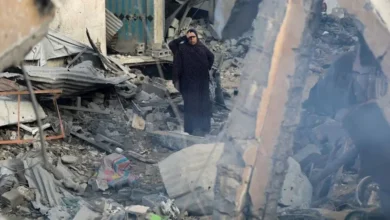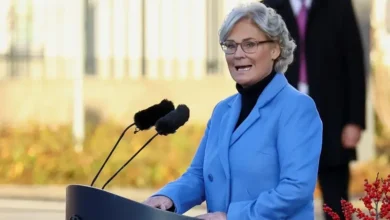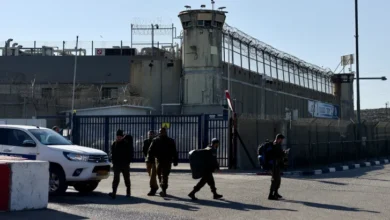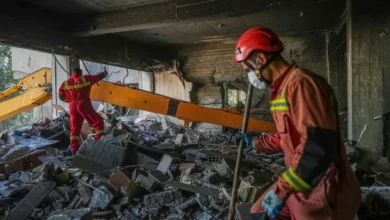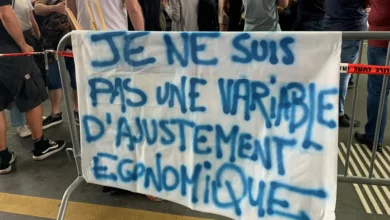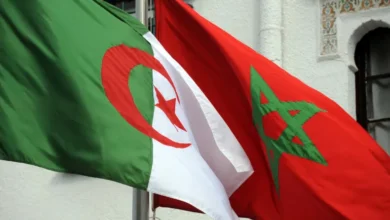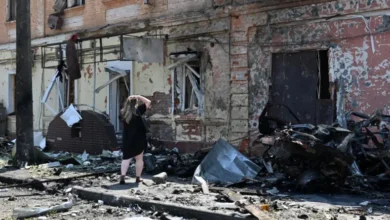Forensic audit accuses Lebanon’s Riad Salameh of embezzlement of state resources
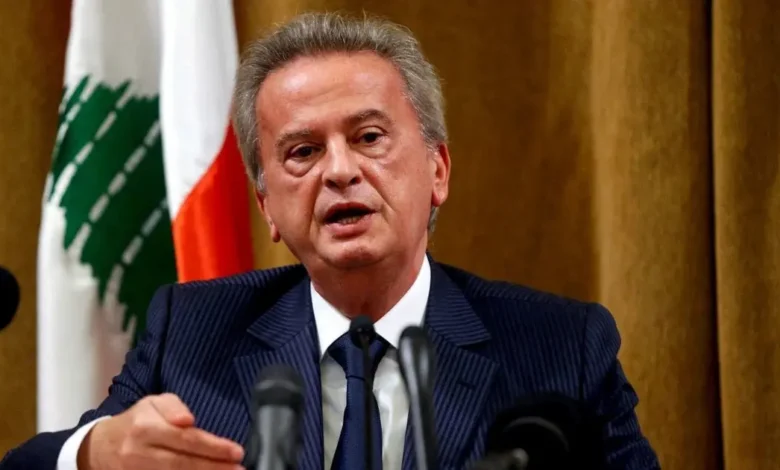
The former Governor of Banque du Liban (BDL) or the central bank of Lebanon, Riad Salameh, carried out “unorthodox” accounting practices during the three decades of his term, overstepped the government commissariat and risk management functions and issued instructions to the accounting department for “offsetting the burdens from the financial correction plan at year end,” the long-awaited Alvarez & Marsal forensic audit said.
Salameh was forcing arbitrary decisions on the higher banking council, which resulted in a one-sided policy, the report, which runs into 332 pages and spread over 14 chapters, said. It contains numerous descriptive details of complex accounting, banking and administrative processes, all clearly indicating Salameh’s irresponsibility in misrepresenting facts and providing an inaccurate picture of the financial position of the bank.
BDL’s published financial results did not provide an accurate picture of the financial position of the bank, the report, which was seen by Al Arabyia English, stated. For instance, BDL has been deferring interest payments on term deposits taken from it till 2050.
The report also charged Salameh for allowing so-called financial engineering operations (a term used to denote generous allowances in interest rates to other banks) that denoted profiteering, while in reality inflicting huge losses on the financial sector and the state exchequer. Auditor Alvarez has accused Salameh of non-compliance with the forensic audit process and withholding information on the pretext of the Banking Secrecy Law. Consequently, the forensic audit was halted twice before it could be completed.
The embezzlement of funds disclosed in the Alvarez report coincides with publication of sanctions by the Office of Foreign Assets Control (OFAC) against Salameh. Both, the Alvarez audit report as well as the OFAC report, accuse Salameh of publishing financial data opaquely and concealing losses and private profiteering.
The Alvarez report further said that Salameh had forced accountants to follow self-dictated accounting procedures that included measures such as:
- Deferring interest expenses to artificially boost profitability in financial statements.
- Creating accounts for unrealized currency profit to cover deferred losses, also with the aim of increasing profitability.
- Inflating the value of government debt bonds by not accounting for their decrease in value.
- Recording unrealized gains/losses in the gold account in the budget, leading to an inflation/deflation of the bank’s assets and capital value.
- Offsetting the Ministry of Finance’s obligations to the Central Bank of Lebanon in US dollars against treasury deposits, resulting in a reduction in the value of assets and liabilities in the bank’s budget.
The so-called financial engineering operations performed during the last year resulted in a 119 percent increase in foreign currency deposits, the report said. The total cost of financial engineering was estimated to have culminated to 115 trillion Lebanese lira by the end of 2020.
Strangely enough, the balance sheet denoted a surplus of $7.2 billion in foreign currencies at the end of 2015, which turned out to be a deficit of $50.7 billion by the end of 2020, the Alvarez report noted.
Financial engineering operations were coupled with an 18 percent decrease in the value of foreign assets. Those operations were highly expensive and included premiums paid to purchase treasury bonds and redeemed certificates of deposits, interest expenses on term deposits and certificates of deposits, high exchange rate differentials paid and costs arising from the difference between the rate at which depositors were allowed to withdraw dollars from banks (8,000 lira) in 2020, as against the official fixed rate (1,500 lira).
In order to avoid losses, BDL transferred costs to the balance sheet. As a result, the shortfall in foreign currency reserves totaled $71.9 billion by the end of 2020, compared to a gross domestic product (GDP) of $31.2 billion, making the foreign currency deficit-to-GDP ratio close to 230 percent, the report said.
The capital shortfall of BDL reached $51.3 billion, the report added, as the quantum of financial engineering totaled 115 trillion lira at the end of 2020. A foreign currency surplus of $7.2 billion at the end of 2015 turned into a deficit of $50.7 billion at the end of 2020. This was driven by a 119 percent increase in foreign currency deposits, the report noted.
Among the irregularities were payments made from BDL to Forry Associates, a company owned by Salameh’s brother, Raja, between 2002 and 2015, totaling $333 million. These payments were based on an agreement signed between the parties on April 6, 2002, whereby, Forry Associates acted as an intermediary to promote the central bank’s products and received a commission of 3-8 percent of the value of operations on Eurobonds, Treasury bonds and certificates of deposit held by the bank.
Payments made during 2015-2020 amounted to $111 million. These payments were made from one account to seven Lebanese banks and a Swiss bank.
Forry Associates is now under investigation in the European Union, especially in Switzerland, France and Germany.
During the review period, operating expenses experienced a slight decline, from 41 billion lira in 2015 to 38.7 billion lira in 2016, the Alvarez report said. This was followed by a steady increase year on year, reaching 63.5 billion lira in 2020 — an increase of about 55 percent from 2015. BDL’s expenses revealed significant pay outs for purposes that may not be considered appropriate, given the financial position of the central bank. These included the following:
- Use of various suppliers’ names to record transfers amounting to around 331.4 billion lira.
- Payment of aid and donations totaling 30.7 billion lira.
- The central bank of Lebanon provided sponsorship for activities, conferences and charitable associations totaling 11.4 billion lira.
- Renting an office for the central bank of Lebanon in Paris, in euros, equivalent to 5.79 billion lira.
- Acquisition of paintings and artworks totaling 2.7 billion lira.
- Payment of 2.1 billion lira in cash to the central bank governor as compensation for his travel expenses and attendance at conferences.
- Purchase of furniture and equipment for the governor’s office in the Financial Market Authority building and executive managers’ offices, totaling 1.5 billion lira.
The former central bank governor cannot be let away scot-free, given the gross financial irregularities that he had indulged in, squandering trillions of state funds through mismanagement and for personal gains. If Lebanon is to come out of its current financial and economic quagmire, fixing accountability and subjecting the guilty to the full face of the law are non-negotiable and the process ought to begin with exemplary punitive measures against Riad Salameh.
